Generative AI & Arts Seminar Series
The Institute for Data Engineering and Science (IDEaS) is pleased to announce the launch of IDEaS-AI seminar series to support campus efforts to engage with the fast-developing field of Artificial Intelligence (AI). The seminar series will bring top AI researchers from around the country and the world, and will be open to all students, faculty, and staff. To kick off the series, we have invited many leading scientists, including leaders of many of the recently announced NSF AI Institutes, and have requested them to share their research, vision and plans.
If you have any questions pertaining to the seminar series, please reach out to Prof. B. Aditya Prakash, IDEaS Director for Seminars and Distinguished Lectures.
Upcoming Seminar
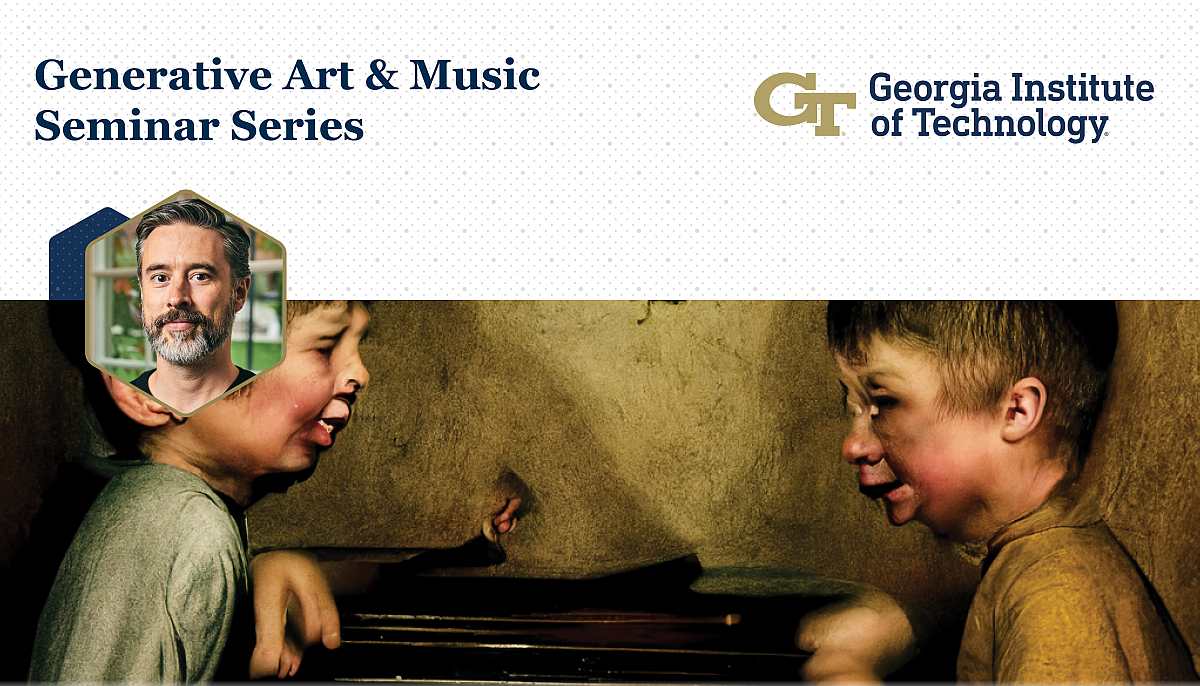
Generative AI Helps One Express Things for Which They May Not Have Expressions (Yet) -- But Perhaps at The Cost of One's Time and Voice
Featuring Bob Sturm | Associate Professor, Royal Institute of Technology, Stockholm, Sweden
February 12, 2024 | 2:00PM | ONLINE SEMINAR
Zoom Link |https://gatech.zoom.us/j/91988929722 pwd=amZwYWxnRkJuK3JsU3IyVW5udUtwdz09
Abstract: I will discuss some of my creative work engaging with generative AI for music, in both the symbolic and audio sample domains, and focus on three observations in particular. The first observation is that generative AI can provide unanticipated opportunities for creation. The raw materials generated by these methods can provide a bonanza of inspiration, assuaging one's personal inertia, fears, insecurities, and whatnot. I have found this, in the best cases, to jump-start my creative process and facilitate flow. The second observation is that generative AI can confront one with too many attractive options, depending on how good it is of course. I have found that the "lottery"-like function of generative AI can become an attention sink, and I desire methods for efficiently searching the creative space of these models. The third observation is that some materials generated by AI might not be "raw" enough, which is to say they leave no room for one's voice. In some work I have created with generative AI I see and hear very little of me in it. This has led me to think what exactly my voice looks and sounds like, and how I might use generative AI to explicitly serve it. My talk will be illustrated by several audiovisual works.
Learn More Here
Past Seminars
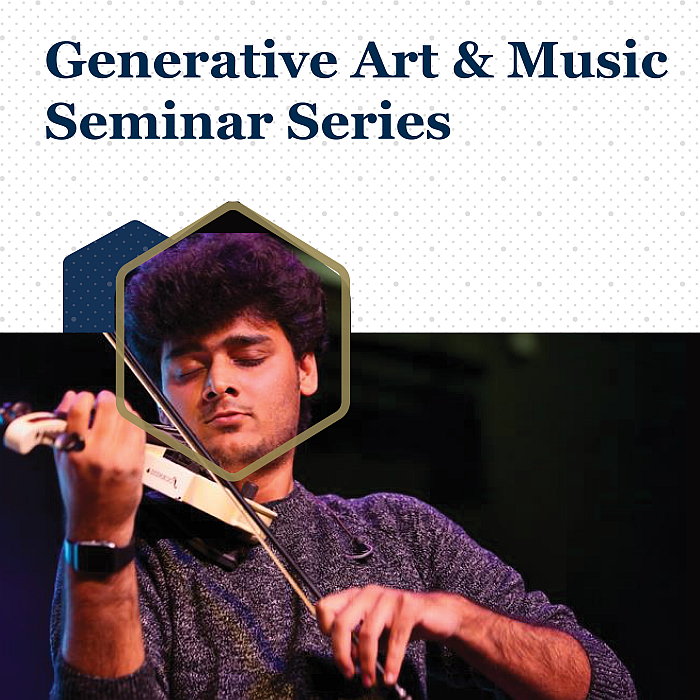 Creating Carnatic Music with Machine Learning Driven Robotic Musicians
Creating Carnatic Music with Machine Learning Driven Robotic Musicians
Featuring Raghavasimhan Sankaranarayanan | Robotic Musicianship Lab
Abstract: My research bridges Machine Learning driven Musician Robotics and Carnatic Music - A music form popular in the southern part of India. Western composers have several tools such as keyboards and Virtual Studio Technology (VST) to experiment and listen to how their pieces would sound before inviting musicians to perform. For Carnatic Music, no such tools are available that support gamakas - pitch-based embellishments in between notes, which are at the core of Carnatic music. The composers are forced to learn keyboard playing techniques that use pitch bends and portamento to play gamakas. Software-based emulations make it hard to accurately model the limitations of violin playing and the timbre that the real instrument produces.
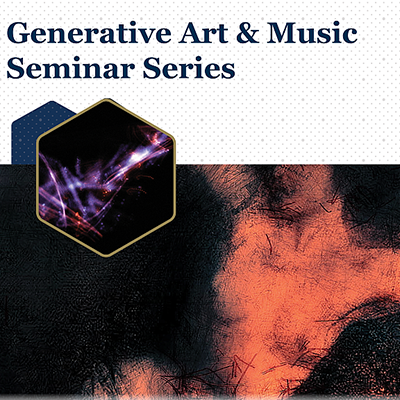 Generativities: Three Scenes From AI & Art, and Some Speculations About the Future
Generativities: Three Scenes From AI & Art, and Some Speculations About the Future
Featuring Marc Downie | Founder & Artist OpenEndedGroup Studio
Abstract: This talk will focus on three of my artworks, made over a period of 25 years, that each used bespoke tools to locate my self uneasily between self-expression and happenstance, between formal rigor and the organic, and between the cold algorithmic and the porosities and contingencies of the world — in sort, artworks that built and exploited whatever seemed to be called AI at the time. As each AI yielded to some other kind of AI, these works span stereoscopic cinema, live musical performance and virtual reality. Thought about as a whole, they perhaps help us plot together some directions through this latest “generative” twist.
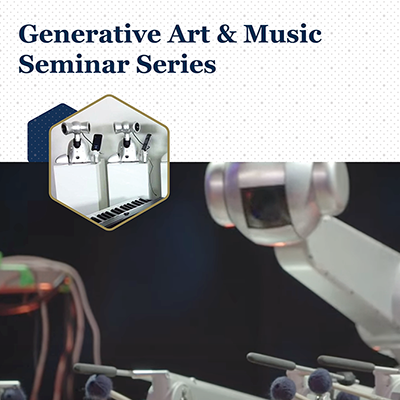 Music Generation for Robotic Musicians
Music Generation for Robotic Musicians
Featuring Mason Bretan Ph.D. | Eikon Therapeutics
Abstract: AI-based generative music and more generally art and language have advanced considerably over the last several years. While these advancements have been quite remarkable, the most notable systems and algorithms are designed for non-embodied agents. In this talk I will focus on music generation for robotic musicians in which the physical limitations and opportunities allowed by a robot's physicality must be considered. I will begin with methods I designed during my time at Georgia Tech as a member of the Robotic Musicianship Group and then describe additional techniques that were developed in the years following while at the AI Center at Samsung Research America (SRA). This includes representation learning for music and path planning for robots using both machine learning and search-based strategies. I will also describe my career path from Music Technology student to tech to biotech and describe how I have applied the skills I developed doing music-focused research at GTCMT and SRA to AI-enabled drug discovery in my current role at Eikon Therapeutics.
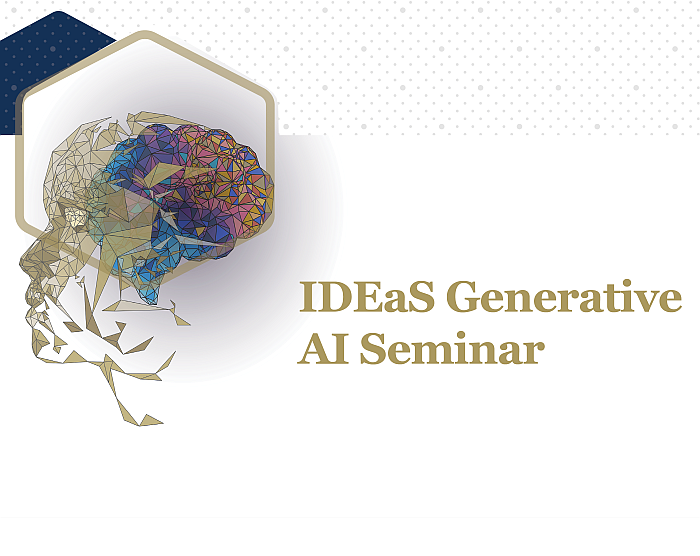
Adobe Firefly: Empowering Human Creativity with Generative AI
Featuring Dr. Oliver Brdiczka Director of Applied Research, Adobe Inc.
Abstract: In this seminar, we will dive into the fascinating world of Generative AI for Creativity. We will review the latest advancements in this field, including Large Language Models (LLMs), diffusionm models, and their applications such as text-to-image generation and text-to-design template creation. We will look into the practical aspects of transforming these cutting edge technologies into viable, user-friendly products, discussing potential challenges and pitfalls. Additionally, we will touch upon the ethical implications of these technologies, underscoring the importance of responsible AI development and use.




